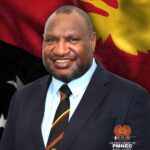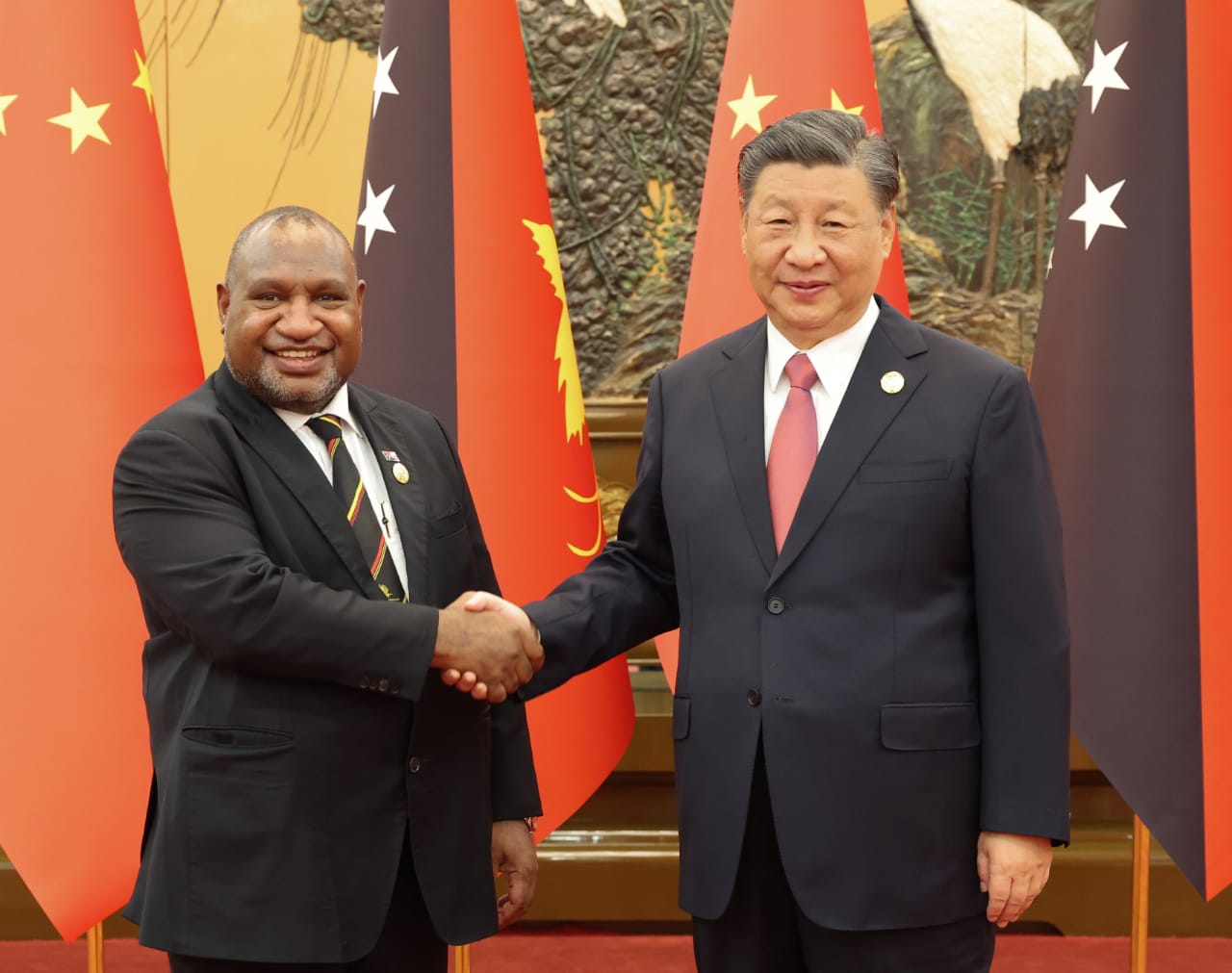Prime Minister Marape today met with Chinese President Xi Jinping at the Great Hall of the People (the equivalent of the National Parliament).
This follows his successful bilateral meeting with Premier Li Qiang the night before at the same venue.
President Xi while acknowledging Premier Li and Prime Minister Marape’s meeting reflected on the growing, deepening and diversification of PNG-China relation and reiterated that as a champion of South-South cooperation, China respects every nations sovereignty, ideals and aspirations and thus does not attach any conditions or strings to its friends and partners. China will assist PNG in its modernization, urbanization, and industrialization efforts, said President Xi.
Relations with PNG have deepened and broadened over time with both countries maintaining significant and sound growth momentum, and China highly appreciated PNG’s consistent upholding and observance of the “One China Policy”.
President Xi acknowledged that PNG was one of the first Pacific Island Countries to sign the Belt and Road Initiative five years ago and through this, China had delivered signature projects such as the Independence Boulevard and Butuka Academy.
At present, projects yet to be concluded included the Completion Certificate for the Western Pacific University, direct air services from mainland China, reciprocal visa waiver, currency settlement, and university collaboration.
China will provide Chinese State Enterprises to partner and develop downstream processing facilities for fisheries, forestry, and coffee, including providing RMB100 million for agreed projects under the Belt and Road Initiative.
In response, Prime Minister Marape thanked President Xi for the warm hospitalities accorded to him and his delegation since arriving in Beijing on Sunday.
Prior to that, I had wonderful exchanges with the Chief Executive of Hong Kong and major Chinese and Asian Investors at the Inaugural PNG-Asia Investment Conference, Prime Minister Marape told President.
In terms of the bilateral relations, conversation digging deeper and securing a shared future with China was vital.
Prime Minister Marape and President Xi, both are strong proponents of forest conservation and management and climate resilience adaptation and mitigation. China will help support PNG’s efforts in clean energy development, carbon footprint offset, and green bond sustainable technology.
Prime Minister Marape also discussed challenges on Pacific economies caused by climate change and sea level rise, advocating for the other fourteen Pacific Island Forum Countries and requested China to consider reaching out to provide desalination plants for fresh water, solar energy, health and education and purchase of our combined marine resources.
Additionally, Prime Minister Marape spoke on PNG’s vast land area and its potential to export food to China, including clean and geothermal energy. The Belt and Road Initiative on road infrastructure connectivity enables us to move into a shared future through food and energy security, said Prime Minister Marape.
Prime Minister Marape then informed President Xi that PNG had made payment of its membership to the Asia Investment and Infrastructure Bank (AIIB) and was now in the process of finalizing the Instrument of Accession to ensure PNG benefited from the resources envelope on offer by the AIIB.
Prime Minister Marape also informed of the establishment of the Bank of China Branch in PNG and the use of Chinese Reminbi as a currency for trade and Kina convertibility, given that China imported more from PNG. In fact, Prime Minister Marape informed the Chinese President that he had invited Premier Li to visit PNG to consolidate relations and outstanding bilateral arrangements.
The main focus of my discussions with President Xi was securing a shared future through increased trade and investment through people to people and business to business relations.
Earlier in the morning, Prime Minister Marape witnessed the formalization of an MoU between Goroka University and Beijing Normal University on Cooperation in student and staff exchanges, curriculum development, research and scholarships. This will greatly contribute to human capital development in PNG.



